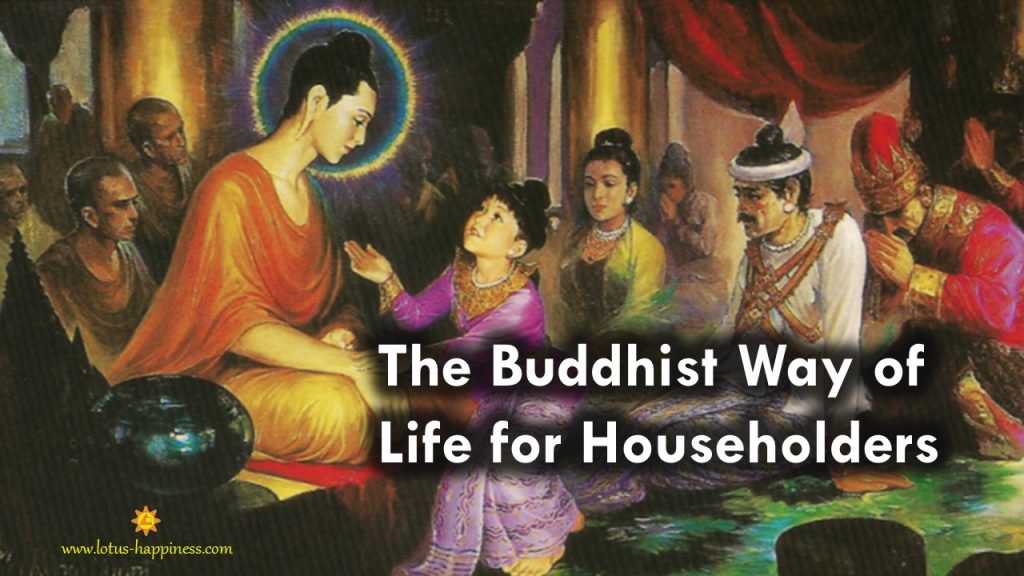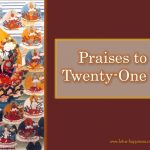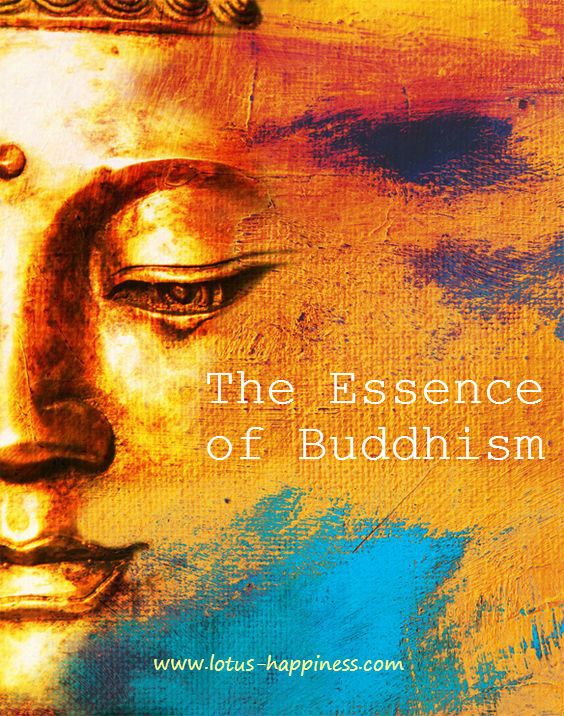
The Buddhist Way of Life for Householders
The Buddha considered economic welfare as a requisite for human happiness, but moral and spiritual development for a happy, peaceful and contend life.
A man named Dighajanu once visited the Buddha and said, “Venerable Sir, we are ordinary layman, leading a family life with wife and children. Would the Blessed One teach us some doctrines which will be conducive to our happiness in this world and hereafter?
The Buddha told him that there are four things which are conducive to a man’s happiness in this world. First: he should be skilled, efficient, earnest, and energetic in whatever profession he is engaged, and he should know it well (utthana-sampada); second: he should protect his income, which he has thus earned righteously, with the sweat of his brow (arakkha-sampada); third he should have good friends (kalyana-mitta) who are faithful, learned, virtuous, liberal and intelligent, who will help him along the right path away from evil; fourth: he should spend reasonably, in proportion to his income, neither too much nor too little, i.e., he should not hoard wealth avariciously nor should he be extravagant- in other words he should live within his means (sama-jivikata)
Then the Buddha expounds the four virtues conducive to a hayman’s happiness hereafter: (1) Saddha: he should have faith and confidence in moral, spiritual and intellectual values; (2) Sila: he should abstain from destroying and harming life, from stealing and cheating, from adultery, from falsehood, and from intoxicating drinks: (3) Caga: he should practise charity, generosity, without attachment and craving for his wealth; (4) Panna: he should develop wisdom which leads to the complete destruction of suffering, to the realisation of Nibbana.
Some times the Buddha even went into details about saving money and spending it, as, for instances, when he told the young man Sigala that he should spend one fourth of his income on his daily expenses, invest half in his business and put aside one fourth for any emergency. Once the Buddha told Anathapindika, the great banker, one of His most devoted lay disciples who found for Him the celebnted Jetavana Monastery at Savatthi, that a layman who leads an ordinary family life has four kinds of happiness. The first happiness is to enjoy economic security or sufficient wealth acquired by just and righteous means (atthi-sukha): the second is spending that wealth liberally on himself, his family, his friends and relatives, and on meritorious deeds (bhoga-sukha): the third to be free from debts (anana-sukha): the fourth happiness is to live a faultless, and a pure life without committing evil in thought, word or deed. (anavajja – sukha)
It must be noted here that first three are economic and material happiness which is ‘not worth part’ of the spiritual happiness arising out of a faultless and good life.
From the few examples given above, one can see that the Buddha considered economic welfare as a requisite for human happiness, but that he did not recognize progress as real and true if it was only material, devoid of a spiritual and moral foundation. While encouraging material progress, Buddhism always lays great stress on the development of the moral and spiritual character for a happy, peaceful and contented society.
Many people think that to be a good Buddhist one must have absolutely nothing to do with the materialistic life. This is not correct. What the Buddha teaches is that while we can enjoy material comforts without going to extremes, we must also conscientiously develop the spiritual comforts without going to extremes, we must also conscientiously develop the spiritual aspects of our lives. While we can enjoy sensual pleasures as laymen, we should never be unduly attached to them to the extent that they hinder our spiritual progress. Buddhism emphasizes the need for man to follow the Middle Path.
Source: The Buddhist Information











